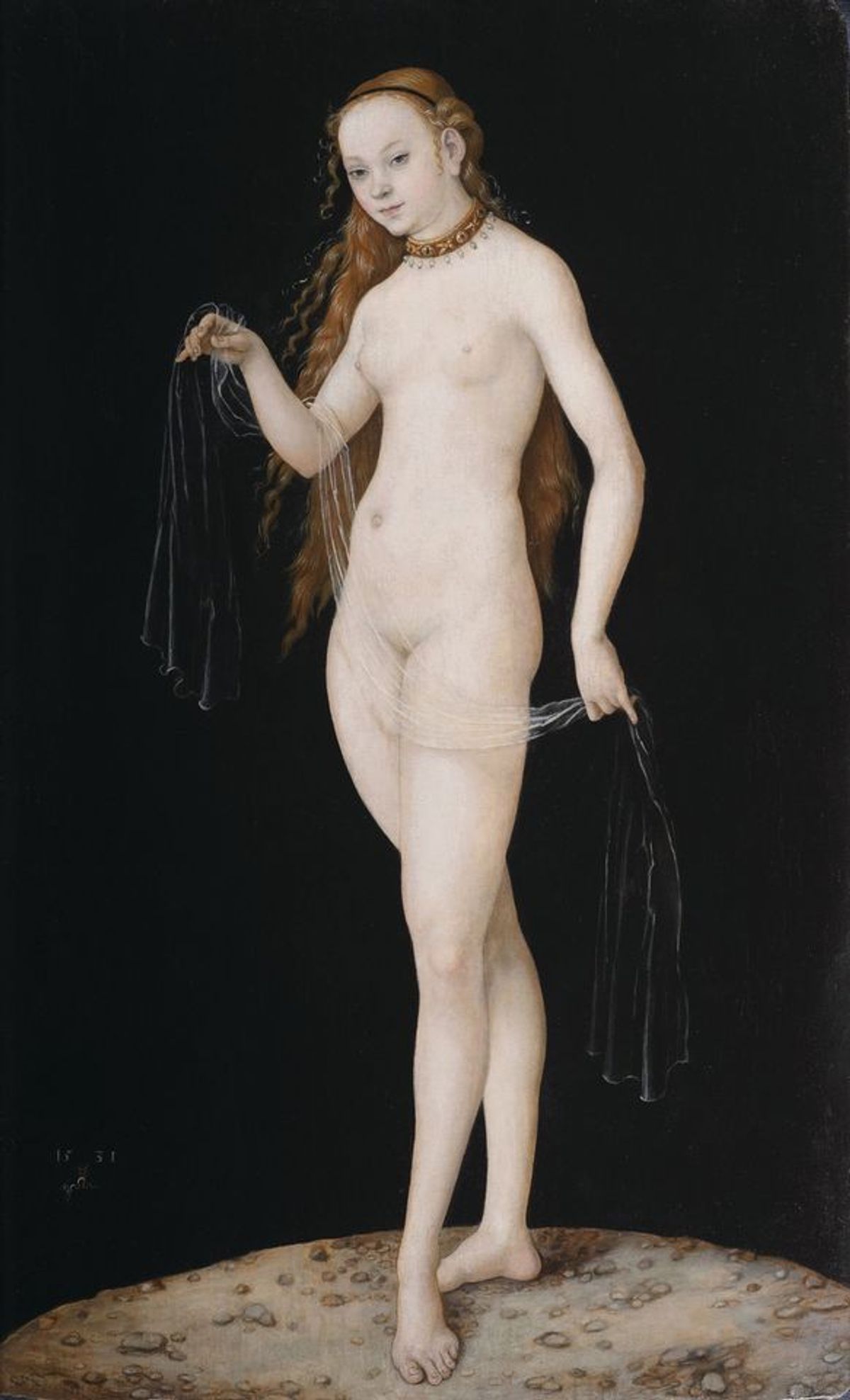A painting of Venus attributed to Lucas Cranach that was seized from its owner, the Prince of Liechtenstein, as part of a high-profile anti-forgery investigation, must now be returned, a court has ruled.
On 15 April, the Paris Court of Appeal ruled that the head of the investigation, judge Aude Buresi, had no further grounds to keep the work as evidence following the completion of technical examinations on the panel. The restitution of the painting “would not obstruct the establishment of truth”, the ruling said, and its confiscation must not “harm the rights of an owner of good faith”. At a previous hearing on 4 February, the prince's lawyer, Anne-Sophie Nardon, stressed that the painting had been confiscated since 2016 and that the investigation into it had closed in 2018; the prosecutor also approved the restitution.
The painting is one of several once owned by the Italian-based French dealer and collector Giuliano Ruffini, who is at the centre of an international forgery scandal. The Musée du Louvre, the National Gallery in London, New York's Metropolitan Museum of Art, the Galleria Nazionale in Parma and Vienna's Kunsthistorisches Museum were all embroiled in the saga, having between them authenticated and borrowed paintings that were sold by Ruffini and later attributed to Orazio Gentileschi, Parmigianino and Frans Hals.
The latest judgement is a setback for Buresi, who launched the investigation into the fakes scandal in 2015 and had previously refused the prince's request to have the panel returned. Six years on, she is still seeking the arrest of the two main suspects in the forgery scandal, who live near Reggio Emilia in northern Italy. A Bologna court refused to apprehend the local painter Lino Frongia, who is suspected of being the painting's forger. The Supreme Court in Rome, however, validated the arrest warrant for Guiliano Ruffini, who is considered by the investigators to be the mastermind behind a huge trafficking ring of forgeries. Ruffini denies these allegations. But his arrest and transfer to Paris have been suspended due to an ongoing Italian investigation for fiscal fraud.
From the start, Venus with a Veil was at the core of the criminal investigation. The seizure of the work during an exhibition of the Liechtenstein collection in the south of France was considered an affront by the prince, who has since refused to lend any further works to French institutions. Adding insult to injury, a 213-page scientific study reported that chemical components were not consistent with Cranach’s workshop, the signature was not by the artist, and the painting presented a cracking network and other signs suggesting that the panel had been warmed to artificially age it.
The report concluded that “the most probable hypothesis is that the work was executed in the manner of Cranach the Elder, by imitating his compositions, his palette, his touch and his time period”. Other scholars and art historians have also since conceded that the work was without doubt a forgery.
However, the prince’s curator, Johann Kräftner, who bought the painting for €7m in 2013 from the art dealer Konrad Bernheimer, challenges these findings and maintains that the discovery of this new Cranach is legitimate and the crown jewel of the 700-strong collection held in the Liechtenstein Palace in Vienna.
Bernheimer and Kräftner had traced the painting's provenance to a Belgian family who had owned it since the mid-19th century. But, The Art Newspaper revealed that the previous owner was in fact Giuliano Ruffini. Claiming he had bought it from the daughter of an entrepreneur in Paris in 1973, he presented an “invoice” including six other paintings, some of which were also declared copies or fakes. None of the paintings bore a price tag, but Ruffini now explains that they were actually gift.
When Ruffini discovered in The Art Newspaper that the prince had paid €7m for the work, he launched a lawsuit in Paris against two middlemen, accusing them of having swindled him. That case is ongoing.
• For more on the Old Master forgery scandal, listen to our podcast


